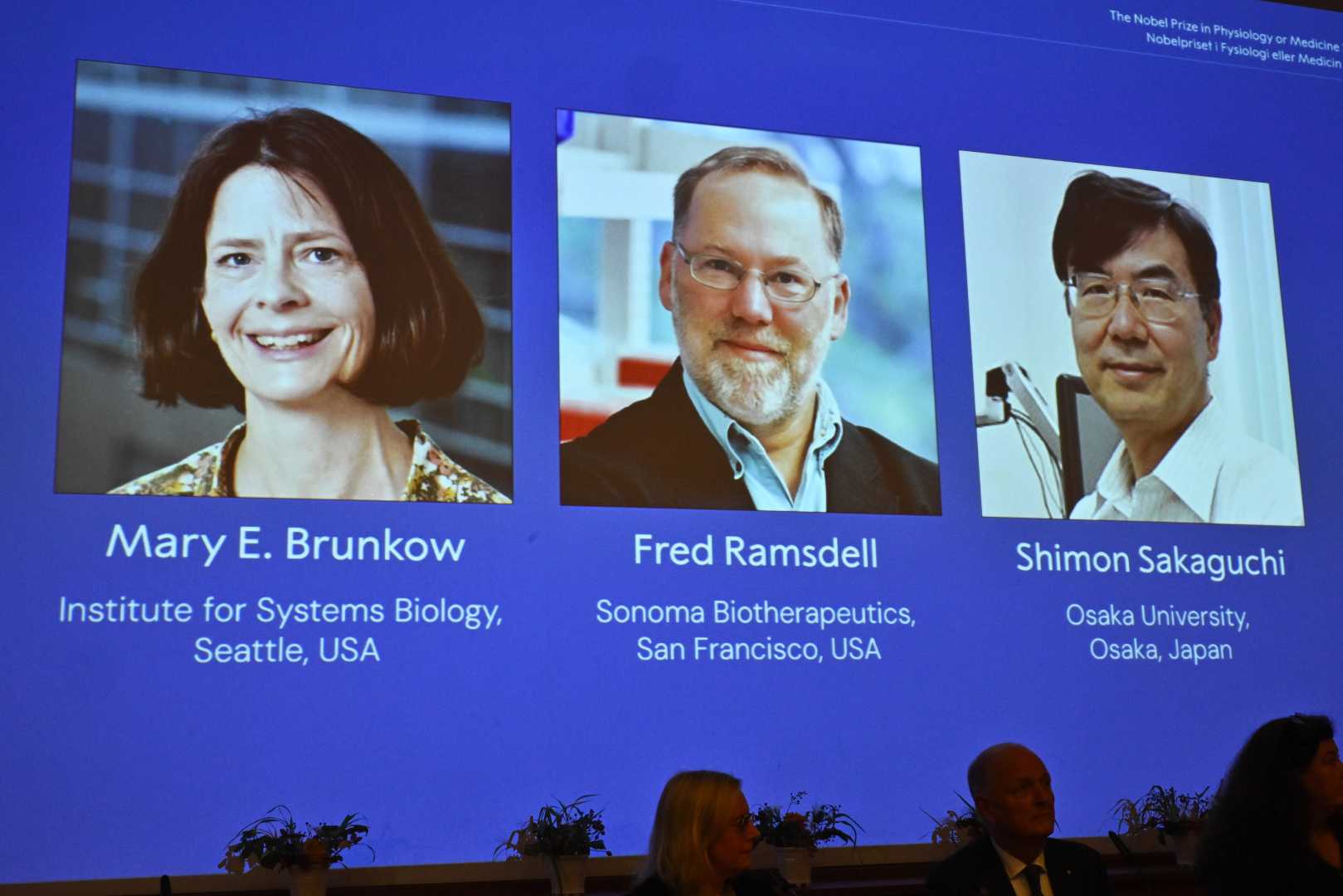News
2025 Nobel Prize in Physiology Honors Immune System Discoveries

STOCKHOLM, Sweden — The 2025 Nobel Prize in Physiology or Medicine was awarded on October 6, 2025, to Mary E. Brunkow, Fred Ramsdell, and Shimon Sakaguchi for their groundbreaking work on peripheral immune tolerance.
The trio’s discoveries explain how the immune system prevents itself from attacking the body’s own tissues. Their research reveals the complex processes that maintain a balance in immune function, thereby preventing autoimmune diseases.
“Their discoveries have been decisive for our understanding of how the immune system functions and why we do not all develop serious autoimmune diseases,” said Olle Kämpe, chair of the Nobel Committee, in a press release.
Shimon Sakaguchi made the initial breakthrough in 1995, challenging the prevailing view that immune tolerance stemmed only from the elimination of harmful cells in the thymus. His research identified regulatory T cells as essential to preventing the immune system from acting against the body.
In 2001, Brunkow and Ramsdell contributed by identifying a mutation in the Foxp3 gene, which left a specific strain of mice susceptible to autoimmune diseases. Their work also linked mutations in the human equivalent of this gene to a rare autoimmune disorder known as IPEX.
In subsequent studies, Sakaguchi established that the Foxp3 gene controls the development of regulatory T cells, cementing the significance of their findings in the field of immunology.
The laureates will share a prize of 11 million Swedish kronor (approximately $1.17 million). Their discoveries have led to the development of innovative treatments for cancer and autoimmune illnesses, some of which are currently in clinical trials.
This Nobel Prize is the first of six to be announced this week, with other categories to follow through October 13.












